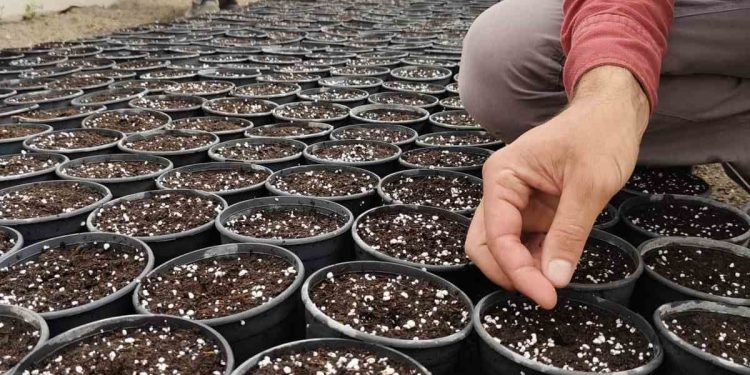The Nowhere Potato Research Institute is breaking new ground by introducing true potato seed (GPT) technology to create industrial, table and disease-resistant potato varieties. This initiative marks a significant step in expanding Turkey’s agricultural potential through indigenous and sustainable potato varieties.
Founded in 1938 as an apple nursery, the institute became a potato production station in 1987, and in 1996 received its current name. For decades, the institute has been at the forefront of potato research and development, making significant contributions to Turkey’s agricultural sector. Through diligent breeding and research efforts, the institute has brought to market ten local and national potato varieties: Onaran 2015, Fatih, Nakhita, Yunlenen, Nam, Chagly, Leventbey, Muratbey, Nigshakh and Sarukhan. Since 2005, these varieties have been sold to the private sector, helping to develop the local potato industry.
Each year, approximately 20,000 pots are carefully planted with seeds by the Institute’s dedicated staff. These efforts have led to significant progress in developing potato varieties that are not only adapted to local conditions, but also have unique characteristics such as disease resistance and suitability for industrial use.
In 2024, the institute intends to take another step forward by registering its first industrial potato variety. This milestone reflects the institute’s ongoing commitment to innovation and improving potato growing conditions in Turkey. The new variety promises to meet the needs of industrial processing, providing producers with a reliable and high-quality product.
The pioneering efforts of the Nowhere Potato Research Institute in the field of growing true potato seeds (GPT) are set to revolutionize potato cultivation in Turkey. By developing new, resilient and locally adapted potato varieties, the Institute is not only increasing the country’s agricultural productivity, but also contributing to global efforts for sustainable agriculture. The registration of new industrial varieties marks an important milestone that promises to bring significant benefits to farmers, the food industry and the wider economy.







